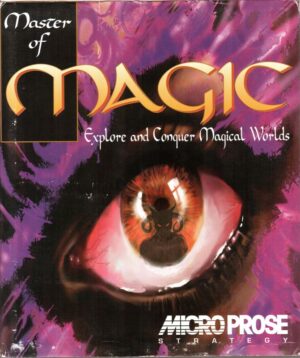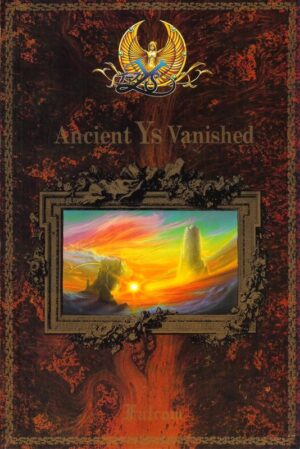Retro Replay Review
Gameplay
Persian Wars adopts a dual-layered approach to gameplay that alternates between a strategic overworld map and real-time mission engagements. On the strategic map, you command armies, construct reinforcements, upgrade your desert base, and choose which tribe to ally with or confront next. Resource management feels streamlined: you capture oasis points and caravan routes to generate supplies, then funnel those resources into troop recruitment and base defenses.
(HEY YOU!! We hope you enjoy! We try not to run ads. So basically, this is a very expensive hobby running this site. Please consider joining us for updates, forums, and more. Network w/ us to make some cash or friends while retro gaming, and you can win some free retro games for posting. Okay, carry on 👍)
The mission variety is one of Persian Wars’ strongest suits. You’ll lead massive pitched battles against the Nomad horsemen, orchestrate hit-and-run raids on enemy treasure caravans, defend oases from Ghûl incursions, or even negotiate alliances with the fierce Amazon tribes. Each assignment demands a slightly different tactic: whether it’s holding chokepoints against swift cavalry, setting up ambushes in rocky canyons, or coordinating multi-pronged offensives, the changing objectives keep the experience fresh.
Combat itself feels like a “lite” version of Black Moon Chronicles. While you still give orders in real time, issuing unit commands and spell casts, the engagements are faster-paced and less intricate. Troop types are fewer—Amazons with razor-sharp glaives, deadly Ghûl shamblers wielding cursed blades, and the desert Nomads on swift steeds—but the ability to pause the action and micro-manage formations makes up for the reduced unit roster depth. Expect brisk skirmishes with a focus on momentum rather than detailed battlefield control.
Graphics
Visually, Persian Wars embraces its Arabian Nights theme with sweeping dunes, lush oases dotted with date palms, and sand-colored fortresses rising against the horizon. Character models for Sindbad, the Amazons, and the Ghûls feature distinctive silhouettes—the sleek warrior women with ornate armor, the spectral shamblers of the Ghûl tribes, and the flowing desert robes of Nomad chiefs. Spell effects, especially when summoning elemental sandstorms or casting healing prayers, add a magical flair.
The engine borrowed from Black Moon Chronicles still shows its age in certain areas: textures can appear pixel-blurred up close, and some environmental assets are recycled from earlier titles. That said, dynamic lighting does an admirable job of conveying the relentless desert sun and moonlit sand, and weather effects—dust devils swirling across the map or clouds of sand kicked up by cavalry charges—enhance immersion. Camera zoom and rotation feel responsive, letting you inspect units or survey the battlefield from varying angles.
Animation quality is generally solid, with smooth unit movements and expressive attack sequences. However, terrain transitions (say, from compacted earth to loose dunes) sometimes suffer from jarring texture shifts. Pop-in of distant units can occur on lower-end hardware, but the overall art direction, color palette, and attention to thematic detail ensure the world of Persian Wars remains visually compelling for most players.
Story
At its core, Persian Wars spins a familiar yet entertaining yarn: the legendary Ring of King Solomon has fallen from the sky into the endless desert sands. You assume the mantle of Sindbad, a driven young warrior determined to claim the ring’s mysterious power. Early cutscenes set up your rivalry with rival chieftains, while tribal lore reveals the ring’s ancient secrets and the price of its dark magic.
As Sindbad, you traverse desert badlands and lush oases, forging fragile alliances with the Amazons, earning the respect of Nomad horsemen, and battling the necrophagous Ghûls—corrupted creatures that prowl ruined tombs. The narrative is carried by a mix of in-game cinematics and mission briefings, introducing new twists: betrayal among allies, visions of the ring’s true potential, and moral crossroads where you decide whether power is worth corrupting your soul.
While the storyline provides enough context to drive missions forward, it occasionally leans on genre tropes—hero’s journey, power-hungry villain, noble saviors. Character development beyond Sindbad himself can feel thin, and certain plot threads wrap up abruptly. Nevertheless, the exotic setting, colorful NPCs, and occasional narrative surprises (such as uncovering a lost desert city) help maintain engagement throughout the campaign.
Overall Experience
Persian Wars offers an engaging blend of fast-paced real-time battles and light strategic planning. Fans of Black Moon Chronicles will appreciate the familiar engine mechanics, and newcomers will enjoy the accelerated pace and reduced micromanagement. The mission variety—from defensive standoffs to covert treasure snatches—ensures minutes of adrenaline-charged desert warfare.
However, the game’s streamlined nature comes at a cost: tactical depth is sacrificed for speed, unit diversity is limited, and the story, while serviceable, rarely surprises. Players seeking a deep strategic sandbox or richly layered narrative might find themselves wanting more. Technical hiccups, such as texture pop-in and occasional frame dips, can also pull you slightly out of the immersive Arabian Nights atmosphere.
In the end, Persian Wars is a solid purchase for gamers craving a light-hearted, action-oriented RTS set amidst a magical desert world. Its polished visuals, distinct factions, and brisk combat make it an enjoyable romp, even if it doesn’t quite achieve the strategic complexity of its engine predecessor. For those looking to lead Sindbad’s charge across sun-baked dunes in pursuit of Solomon’s Ring, the journey is well worth undertaking.
 Retro Replay Retro Replay gaming reviews, news, emulation, geek stuff and more!
Retro Replay Retro Replay gaming reviews, news, emulation, geek stuff and more!









Reviews
There are no reviews yet.